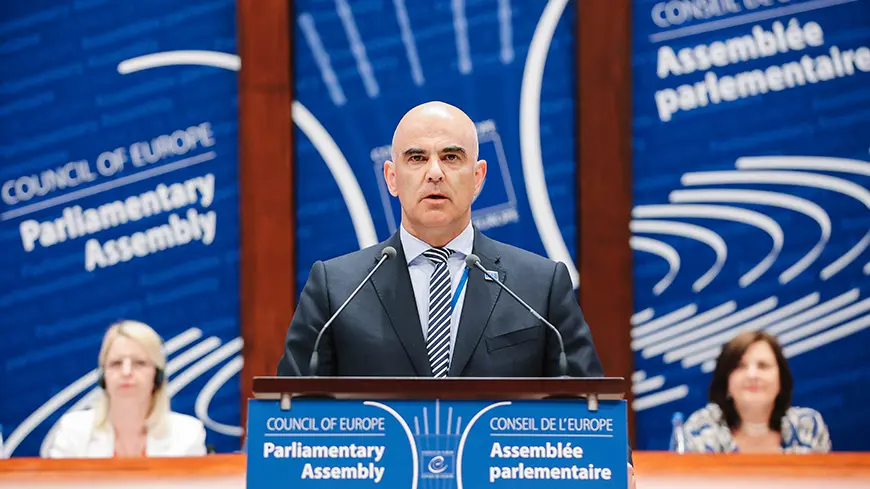While the Chinese Communist Party subjects European citizens and leaders to a hypocritical image-management campaign, European Parliamentarians are insisting on the truth about China’s barbaric persecution of a religious minority.
By Marco Respinti* and Aaron Rhodes**
Resolutions by international bodies can’t guarantee human rights or justice but can call in the obligations of governments, world organizations, supernational bodies, and even world political and legal powers to address egregious violations of universal standards. On January 18, 2024, the European Parliament (EP) openly condemned “the ongoing persecution of the Falun Gong in China.” There have been, of course, precedents on the subject, but the language used and the clarity of the denunciation has no equal in previous European Union expressions.
The murder of practitioners of Falun Gong has been tirelessly perpetrated by the Chinese Communist regime since 1999, with horrific brutality. Falun Gong is a Chinese new religious movement, established in 1992. Initially, the regime tolerated and even favored it, considering its practices based on a variant of qi gong, the traditional Chinese gymnastics, as a healthy panacea for the perfect communist citizen. But, gradually failing to deny and eliminate the spiritual dimension of the movement rooted in the “Three Teachings,” (the traditional matrix of Chinese spirituality made up of Taoism, Confucianism, and Buddhism), the regime began to ruthlessly persecute Falun Gong practitioners. Officially banned since 1999 (with other groups), the movement has since fallen prey to the vile practice of forced organ harvesting to feed a rich international black market of transplants and other lethal punishments.
The European Parliament resolution
“[c]alls for the EU and its Member States to publicly condemn organ transplant abuses in China and to use the EU Global Human Rights Sanctions Regime and national human rights sanctions regimes against all perpetrators and entities that have contributed to the persecution of Falun Gong practitioners in China and abroad.”
The statement concretely “stresses that EU measures should include refusing visas, freezing assets, expulsion from EU territories, criminal prosecution, including on the basis of extraterritorial jurisdiction, and bringing international criminal charges” against the perpetrators of such horrors.
Since 1999, it notes, “the Chinese Communist Party (CCP) has engaged in systematic persecution to eradicate the Falun Gong religious movement.” Underlining that “freedom of religious belief is deteriorating across the People’s Republic of China (PRC)” despite Article 36 of the PRC Constitution that “stipulates that its citizens must enjoy freedom of religious belief,” the resolution highlights that “technology-based censorship and surveillance are central to this repression.” The EP states that “it is documented that thousands of Falun Gong practitioners have died as a result of the CCP’s persecution since 1999” and that “practitioners are frequently detained and reportedly subjected to torture, psychological abuse, and organ harvesting so that they renounce their faith.”
The resolution focuses on a particular case as illuminating the persecution of the whole Falun Gong movement, the case of Mr. Ding Yuande and his wife, Ms. Ma Ruimei, both Falun Gong practitioners in the PRC, whose sad case is known. They were arrested on May 12, 2023, without any warrant, and while Ms. Ma was later released on bail, thanks to the public effort of Ding Lebin, their son and an exiled Falun Gong practitioner as well. The police continued to intimidate the woman after her release, but her husband remains in custody, sentenced to three years in prison with a CNY 15000 fine (almost €2,000) on December 15, 2023. His sole offense is to be a religious believer in an atheistic regime.
As the EP resolution passed, Falun Gong published its annual report on victims. The well-documented dossier shows that persecution didn’t decrease in 2023. 1,188 Falun Gong practitioners were in fact sentenced and 209 killed, bringing to over 5,000 the number of deaths since the Chinese Communist Party (CCP) began the persecution of that religious movement in 1999.
With Chinese operatives moving to gain influence on European governments, media, educational institutions, and business enterprises, the EP resolution deserves the widest possible attention. It can show Europeans the true nature of the regime seeking the leadership of the “Community of Common Destiny for Mankind.”
* Marco Respinti is director-in-charge of “Bitter Winter: A Magazine on Religious Liberty and Human Rights.”
**Aaron Rhodes is president of the Forum for Religious Freedom-Europe. He was Executive Director of the International Helsinki Federation for Human Rights 1993-2007.







